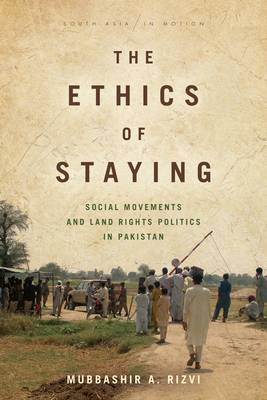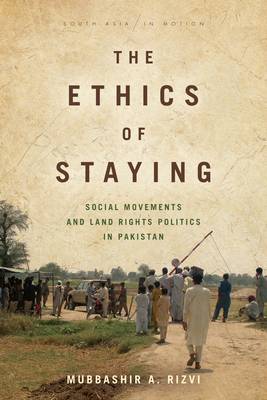
Door een staking bij bpost kan je online bestelling op dit moment iets langer onderweg zijn dan voorzien. Dringend iets nodig? Onze winkels ontvangen jou met open armen!
- Afhalen na 1 uur in een winkel met voorraad
- Gratis thuislevering in België vanaf € 30
- Ruim aanbod met 7 miljoen producten
Door een staking bij bpost kan je online bestelling op dit moment iets langer onderweg zijn dan voorzien. Dringend iets nodig? Onze winkels ontvangen jou met open armen!
- Afhalen na 1 uur in een winkel met voorraad
- Gratis thuislevering in België vanaf € 30
- Ruim aanbod met 7 miljoen producten
Zoeken
€ 45,45
+ 90 punten
Uitvoering
Omschrijving
In Masters Not Friends, Mubbashir Rizvi lends a historical and ethnographic perspective to the rise of one of the largest, most successful land rights movements in South Asia, the Anjuman Mazarin Punjab (AMP), who, against all odds, successfully resisted the Pakistani military and made a case for their moral right to farmland. The case of AMP provides a unique lens through which to examine state and society relations in Pakistan, and bridge literatures from subaltern studies, military power, colonial technology and governance, and the language of claim-making. More broadly, Rizvi offers a glimpse of Pakistan that contrasts with its standard framing as a hub of radical militancy and terrorism.
Specificaties
Betrokkenen
- Auteur(s):
- Uitgeverij:
Inhoud
- Aantal bladzijden:
- 224
- Taal:
- Engels
- Reeks:
Eigenschappen
- Productcode (EAN):
- 9781503608764
- Verschijningsdatum:
- 7/05/2019
- Uitvoering:
- Paperback
- Formaat:
- Trade paperback (VS)
- Afmetingen:
- 152 mm x 229 mm
- Gewicht:
- 317 g

Alleen bij Standaard Boekhandel
+ 90 punten op je klantenkaart van Standaard Boekhandel
Beoordelingen
We publiceren alleen reviews die voldoen aan de voorwaarden voor reviews. Bekijk onze voorwaarden voor reviews.











